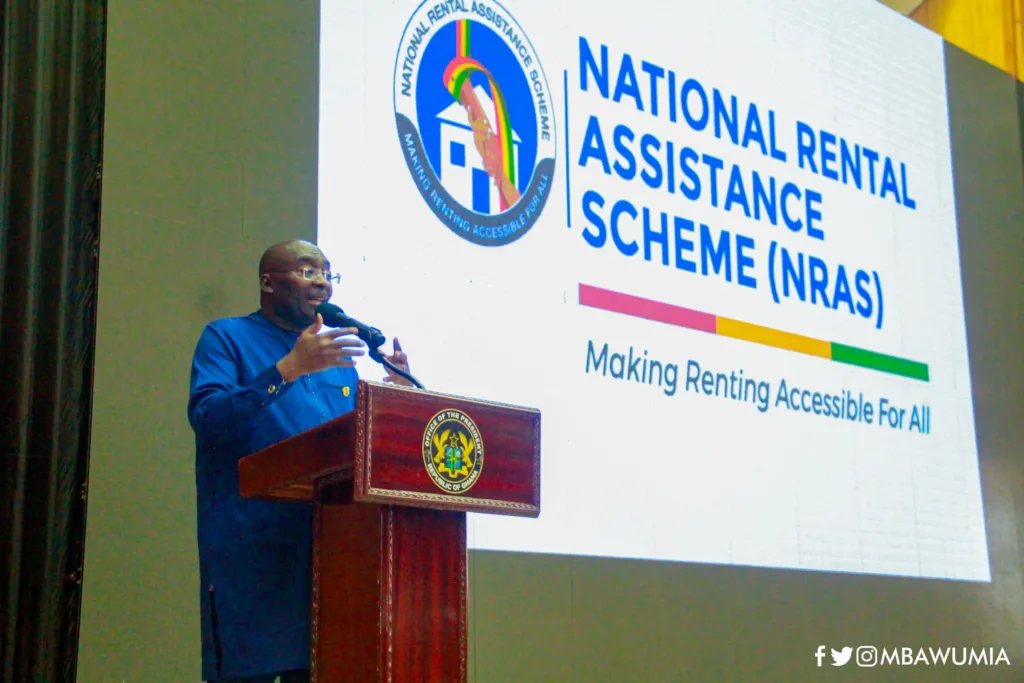Ghana’s National Rental Assistance Scheme Under Fire: Tenants’ Union Calls for Immediate Suspension
Tenants’ Union Demands Overhaul of Flawed Housing Program
The National Tenants’ Union of Ghana has formally called on Kenneth Adjei, Minister for Works and Housing, to immediately suspend the National Rental Assistance Scheme (NARAS), citing fundamental flaws in its implementation that have undermined the program’s original purpose and effectiveness.
The Call for Suspension
In a strongly worded open letter addressed to the recently appointed minister, the union expressed significant concerns about NARAS, a program launched on January 31, 2023, with the intended purpose of alleviating rental burdens for Ghanaian citizens.
“We acknowledge the need this policy brings to the table, but we disagree with the current state of its implementation, which has resulted [in] the majority of Ghanaians in dire need of the services the scheme provides,” stated Frederick Opoku, Secretary-General of the National Tenants’ Union, in the signed letter.
The union is advocating for a complete halt to the program, followed by comprehensive stakeholder engagement to revise the policy. Their position is that the current framework is exclusionary and lacks the transparency necessary for a public assistance program.
Six Critical Issues Identified
1. Exclusion of Informal Sector Workers
The union argues that the current design of NARAS effectively marginalizes tenants working in Ghana’s informal sector—precisely those who require rental assistance the most. This systemic exclusion contradicts the program’s stated purpose of providing widespread rental relief.
2. Legal Compliance Concerns
According to the Tenants’ Union, the practice of granting two-year rent advance loans directly violates Section 25(5) of Ghana’s Rent Act, Act 220 of 1963. This raises significant questions about the legal foundation of the entire program.
3. Prohibitive Application Process
The GH₵100 non-refundable application fee charged online has been characterized as excessive and exploitative, creating an unnecessary financial barrier for those seeking assistance.
4. Unreasonable Interest Rates
The scheme’s 12% annual interest rate on rent loans has been criticized as unreasonably high, particularly for a government assistance program targeting vulnerable populations.
5. Regional Inequality
Despite nearly three years since its launch, ten of Ghana’s sixteen regions remain excluded from the scheme, creating geographic disparities in access to housing assistance.
6. Financial Accountability Questions
Perhaps most concerning, the union has raised alarms regarding the lack of public accounting for the GH₵30 million startup capital allocated to the program and the absence of transparency regarding the actual number of beneficiaries.
Calls for Accountability and Reform
“This is not just about fairness; it’s about accountability and the responsible use of public funds,” emphasized Mr. Opoku in the letter, which was distributed to media outlets nationwide.
The National Tenants’ Union believes that temporarily suspending NARAS would create space for essential reforms to make the program more inclusive, legally compliant, and transparent—ultimately better serving all Ghanaians in need of rental assistance.
Moving Forward with Housing Assistance
Housing experts across West Africa have consistently emphasized the importance of inclusive housing policies that address the needs of both formal and informal sector workers. The current controversy surrounding NARAS highlights the challenges of implementing effective housing assistance programs in developing economies.
For citizens currently seeking rental assistance, alternative resources include community-based housing cooperatives and microfinance institutions offering housing loans.



